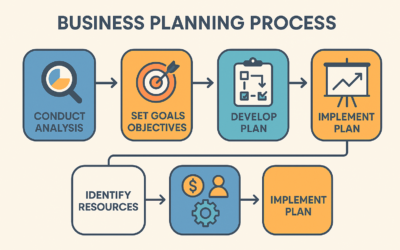Although it may seem to some that the price of a company and its value are the same thing, this isn’t the case at all. In fact, the differences are simple but crucial. If you understand the distinction between the two, you can have greater leverage when negotiating and can avoid making a poor investment.
If you read our Global Resources reviews, you’ll see that our consultant team are experts in helping entrepreneurs with their business valuation needs, and here, we look at how to determine the difference between price and valuation when it comes to your small business so you can be better informed.
Understanding Value
Value is easily broken down into two subdivisions – market value and book value.
As you might imagine from the name, book value refers to what is shown in the company’s books. Accounting shows the value of a company by subtracting its liabilities from its assets. The amount remaining if the business was to sell its assets off and settle all its debts represents the company’s book value.
Market value, meanwhile, refers to the company’s value on the stock market. The simplest way of calculating this is to multiply the current market price by the number of shares. Sometimes, this is known as the business’s market cap. Typically, the market value represents the value referred to by analysts since it reflects the amount that would be paid for the business if it was being purchased.
There is another type of value to consider too. This is the intrinsic or fundamental value. This represents the firm’s estimated value based on the expectation of future cash flow. This estimate is based on an evaluation of investment needs, earnings potential, business models, and financing opportunities which are adapted then inserted into the chosen valuation model.
The Link Between Fundamental Value And Market Value
When considering the link between fundamental value and market value, there are a few key principles to bear in mind. If the company’s market value is lower than its fundamental value, it means that, for some reason, the market is undervaluing the organization. Some investors actively seek out companies like this since they’re seen as an excellent investment opportunity. If the reverse holds true, the market typically believes that the company’s potential earnings are good. If the fundamental and market values are both equal, both your fundamental valuation and the market itself have agreed upon the company’s value.
Knowledge Determines Price
When considering market value, it’s fair to say that the price of a business, product, or service has for some time been seen as a compromise between the price the seller is prepared to sell and the amount the buyer is prepared to pay. In practical terms, several factors come together in determining the price. For example, the number of potential buyers, a sense of urgency in the deal, and the involved parties’ negotiation power all have a role to play.
Reaching Agreement
At the end of the day, both price and value fluctuate during any business’s lifespan, and especially so during negotiations. A business’s fundamental value will be based primarily on trust and belief in the company. If potential buyers believe that the organization is able to grow and remain profitable, it will be worth more. Also, a price spike can be precipitated due to the industry itself as well as timing. Therefore, when it comes to evaluating a company’s price and deciding whether an investment is worth it, potential buyers need to weigh up all of the factors and establish links between the company’s fundamental value, its future prospects, and its accounting data. Based on that information, sellers and buyers can reach agreements on price.

0 Comments